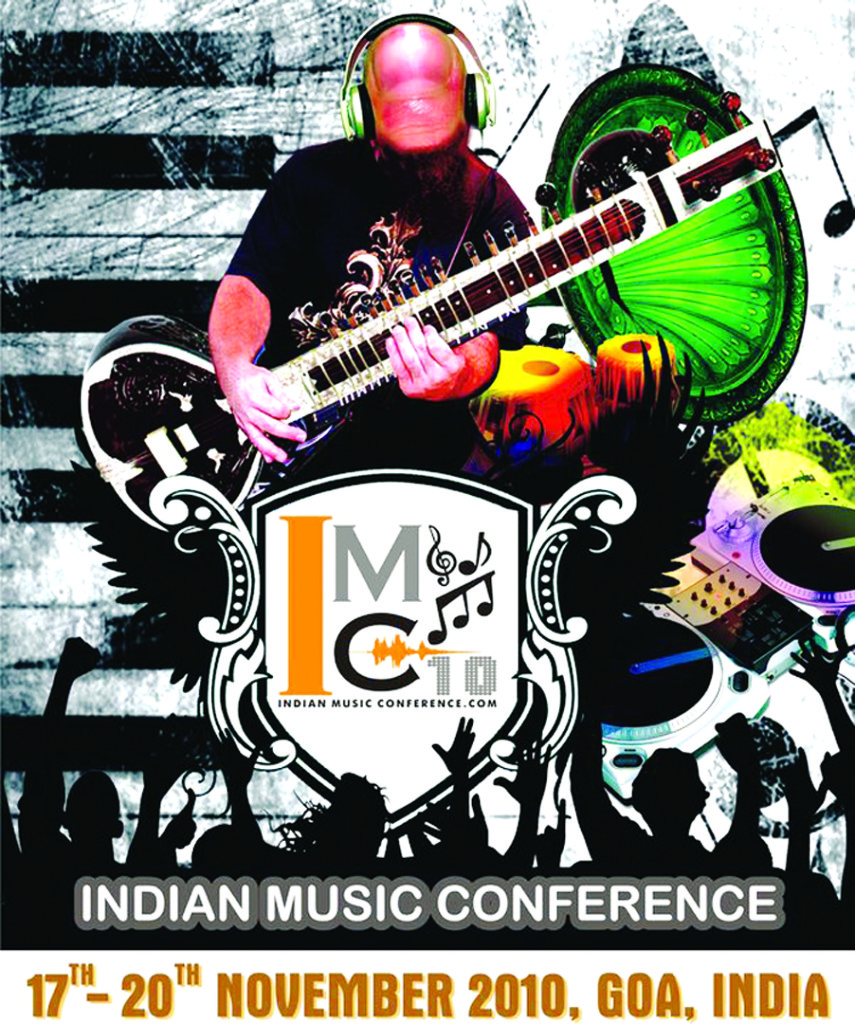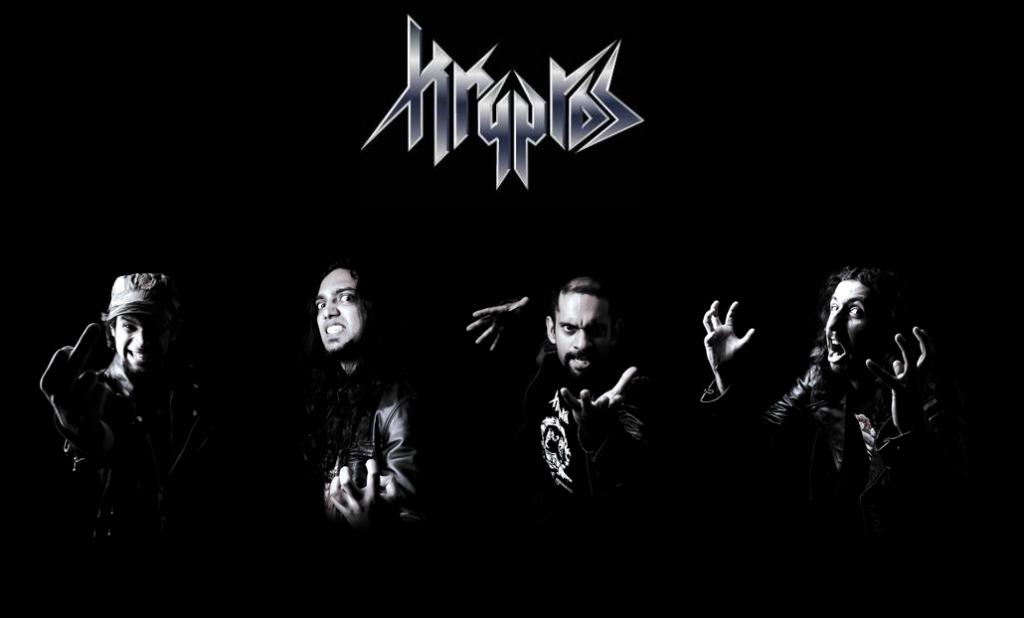
The concept of Indian Music Conference was appealing to everyone in the music community – bringing together musicians and fans from across the country to discuss and improve the growing music scene in the country together. Conferences, guitar clinics and performances were to flock the grounds of Goa at different venues between the 17th and 20th of November. The performances included DJs from across the world, rock and metal acts including Cynic, Hacride, Leaves Eyes, Cyanide Serenity and the country’s finest bands.
IMC Canned!
While fans waited on the beaches for Saturday to approach to watch Cynic and Hacride play alongside their friends on a big stage, little did they know that only half of Cynic were going to land in Goa the following day. Cynic’s visa processes were incomplete. “When Robin and I did make it to Goa, we agreed to do a stripped down, spacey improvisation instead of our performance with Cynic. We prepared some really cool sounding ideas but the entire festival part of IMC got cancelled,” said Tymon Kruidenier, guitarist of Cynic.
Pink Noise and Skinny Alley who did make it in their full avatars to Goa also did not play due to inadequate sound systems. Jayashree Singh, the vocalist said they received unprofessional answers from the production team and the sound guys. We spoke to Chandan Raina who worked on IMC during its conceptualization. He recalls Gagan responding to the Leaves Eyes tech rider saying “Agar volume half pe hee bajaani hai toh itni sound kyun? Kam sound laao – sasti padegi.”
Just a week later, the organizers of IMC start a new event on Facebook for ‘Indian Music Conference 2011’ without releasing any kind of statement or apology regarding IMC 2010. After a number of fans bombarding the event page with sarcastic and nasty comments, Gagan Myne finally posted an apology but there was no clear explanation as to why the rock and metal acts of the festival were cancelled.
While the artists and fans were told that there was trouble with the authorities about permits, Gagan had commented saying that the Goan government and locals did not cooperate leading to the cancellation. To which Yuri Rubeiro, an event manager at Goa’s famous club Titos responded saying “Why would they? Not a single artist from Goa was a part of it. None of the DJs or bands from Goa were invited which led to the boycotting of IMC by the locals. An event requires a large portion of its crowd to be from the local area. An organizer cannot rely on a large number of people flying in regardless of how big the show is.”
Sankalp Narayanan, bassist of Theorized said there was not a single ad in the newspaper he picked up. There were a few hoardings and posters here and there. The publicity was definitely not up to mark. When asked on the same, Yuri said, “My clubs ran full on the same day as the events of IMC. So I don’t really know what kind of publicity ran for those. I even did a DJ from Bombay and it still got a packed crowd.”
The artists speak
We spoke to a few artists who played or attended IMC 2010 and they all had bitter-sweet things to say about the festival. There was no compromise made on arranging the finest travel and accommodation for bands from across the country. There were some complaints from bands whose members were booked on different flights and some bands whose flights were cancelled. One of Bangalore’s most popular bands (who would prefer not to be named) said they were not even informed by the organizers that their flight was cancelled. They luckily double checked with the airline the previous night.
The transport from the airport to the hotel was delayed for most bands. A lucky few who knew the organizers prior to the event were picked up on time. There were no complaints about the accommodation. The bands were put up in luxurious hotels where the service was great.
Apart from inadequate sound, Archana Sudarshan from Artistes Unlimited said there was no one place where people could get information. There was a help desk located at Resort Rio where most of the bands were put up and the seminars and guitar clinics were happening. But the other venues were clueless as to what was happening where and since the venues were apart from each other, getting around the festival was quite a hassle.
Many of the clubs were unaware of the artists who were to play at their venue. The organizers themselves had never been to the clubs. “They have sent artists to clubs they haven’t visited themselves and after the gigs they asked the artists how the club is, so I was a bit disappointed there. So I spoke to the other DJ’s that played that night and together we rescheduled the IMC schedule for that night and rocked the show,” said DJ Mike Bosch from Spain.
Even though the festival had taken a clearly bad turn, nobody complained. “We got to hang out with a lot of musicians who we had never met before. We felt bad for the organizers, for the young girls who had to handle everybody’s questions. Everyone was just trying to make the best of the bad days. I felt proud of my community,” said Jayashree Singh.
While the organizers of IMC blame the failure entirely on Goa, ironically it is Goa that saved them from facing a riot. The artists were upset about the cancellation of their performances but on the other hand, they were on holiday in Goa for 5 days! If it was any other city, the response would surely have been different. When asked if they would play at IMC again, all the artists responded positively but they did have a few suggestions to make.
“I’m looking forward to the IMC 2011 to get connected to more people in the music industry. In order to make it better, the organisation should check out the clubs BEFORE they put artists on their stage or DJ boot. Also shuttles and time schedules could be better organised,” said DJ Mike Bosch.
“They bit off a whole lot more than they could chew. Take baby steps – cut down on number of venues, artists, days. I’m sure they’ve learnt their lesson. They should change their production team, get a professional crew and pick a location where infrastructure is in place,” said Jayashree Singh.
Fans disappointed
The artists were given travel and accommodation but the trip costed a whole lot more for the fans. Apart from spending on the ticket, travel and accommodation, music lovers took leave from their jobs causing them to spend over 8000 rupees on the whole ordeal. The organizers had separate tickets that included the entry into the clubs. This ticket was sold at 2000 rupees. “All the club shows were free, anyone could have entered, so we ended up paying 750 extra for no cause,” says Anand Kamath, one of the attendees who got a refund for his ticket.
Adarsh R clearly sums up the pleas of every disappointed fan – “Can I have my Rs.1250 back?”
The refund mess
After the canning of IMC, many fans returned disappointed and broke. The IMC pages were flooded with fans cribbing about refunds, many going to the lengths of using Fs and Bs. One fan, Varun Sharma from Bangalore sent a bunch of emails to IMC and Kyazoonga claiming refunds but was only juggled between the two and to this date is still waiting for his refund. On the other hand, Anand Kamath, also from Mumbai made about 200 badgering calls before Gagan Myne refunded his and his friends’ tickets.
While many fans are still waiting for their refunds and are tired of making calls and sending emails, I contacted Kyazoonga to find out who exactly is in charge of the refunds and why there is so much confusion. “As soon as some of the events of IMC were cancelled, we were instructed by IMC to direct people to them regarding refunds. We have been receiving emails from people and have been directing them back to IMC. We are not in charge of refunds for the IMC tickets,” said Neetu Bhatia from Kyazoonga.
Amateurs or simply unethical?
The reactions to the disorganization of IMC have been plenty. Many people spammed the event page with nasty comments and sarcastic remarks. No statement of cancellation or apology was released by the organizers until more than two weeks after. Nobody is saying that Spotlight Events organized IMC badly out of spite. But a certain level of respect that must be maintained towards the growing music scene and musicians in India was not met.
No damage control was done on part of IMC to accommodate the International bands like Hacride, Leaves Eyes and Cyanide Serenity. Thanks to an initiative by B69, Hacride and Cyanide Serenity got to play a show in Mumbai. And as for the bands that did get to play at IMC on inadequate sound, what is the point of providing a musician with the best travel and accommodation if you are going to compromise on sound?
Things went wrong and what’s done is done. But the responsibility of an event doesn’t end with it. Not only did they fail to apologize on time but many fans asking for refunds were treated with disrespect on the event page. People’s questions were not answered but deleted. The response from the organizers of negative criticism was defensive.
We spoke to Gagan Myne and told him that if he answers our questions, it also gives them a chance to come clean and win back the audience they lost. He agreed and we sent him the questionnaire on the 27th of January. Two weeks later, when we still hadn’t received his answers, we asked him if we should write the article without his answers to which he said “As you feel because you are the boss and have a very keen interest in IMC and it makes me proud when people talk about it.”
Yes, we are talking about it. For some of us, it came as a blow to the Indian music scene. What does the disorganization of IMC say about the music scene in India? What kind of picture was painted for the international bands that came down and didn’t get to play? What does that picture make of the people who are working hard to improve the scene?
It’s the 1st of March and we’re still waiting for the answers to our questionnaire.
Rumour is that the Cradle of Filth event is also being organized by Spotlight. But more on that later!







